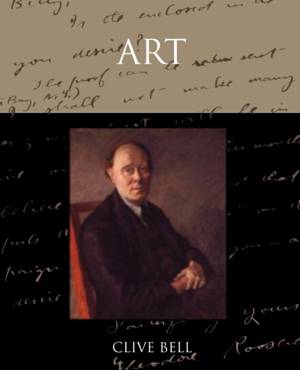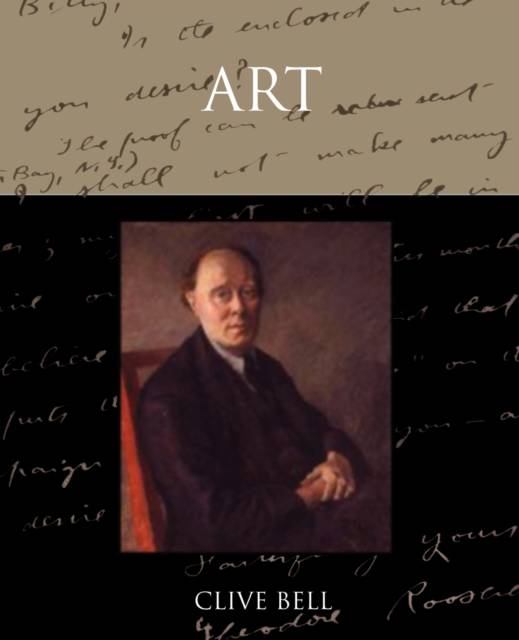
Bedankt voor het vertrouwen het afgelopen jaar! Om jou te bedanken bieden we GRATIS verzending (in België) aan op alles gedurende de hele maand januari.
- Afhalen na 1 uur in een winkel met voorraad
- In januari gratis thuislevering in België
- Ruim aanbod met 7 miljoen producten
Bedankt voor het vertrouwen het afgelopen jaar! Om jou te bedanken bieden we GRATIS verzending (in België) aan op alles gedurende de hele maand januari.
- Afhalen na 1 uur in een winkel met voorraad
- In januari gratis thuislevering in België
- Ruim aanbod met 7 miljoen producten
Zoeken
Omschrijving
Clive Bell was a 20th century art critic. Wikipedia summarized Bell's philosophy as follows. "In general formalism (which can be traced back at least to Kant) is the view that it is an object's formal properties which makes something art, or which defines aesthetic experiences. Bell proposed a very strong version of formalism: he claimed that nothing else about an object is in any way relevant to assessing whether it is a work of art, or aesthetically valuable. What a painting represents, for example, is completely irrelevant to evaluating it aesthetically. Consequently, he believed that knowledge of the historical context of a painting, or the intention of the painter is unnecessary for the appreciation of visual art. He wrote: "to appreciate a work of art we need bring with us nothing from life, no knowledge of its ideas and affairs, no familiarity with its emotions"(Bell p27)." According to Bell nothing is more valuable that a visual work of art.
Specificaties
Betrokkenen
- Auteur(s):
- Uitgeverij:
Inhoud
- Aantal bladzijden:
- 158
- Taal:
- Engels
Eigenschappen
- Productcode (EAN):
- 9781438527970
- Verschijningsdatum:
- 4/11/2009
- Uitvoering:
- Paperback
- Formaat:
- Trade paperback (VS)
- Afmetingen:
- 190 mm x 235 mm
- Gewicht:
- 281 g

Alleen bij Standaard Boekhandel
+ 51 punten op je klantenkaart van Standaard Boekhandel
Beoordelingen
We publiceren alleen reviews die voldoen aan de voorwaarden voor reviews. Bekijk onze voorwaarden voor reviews.









